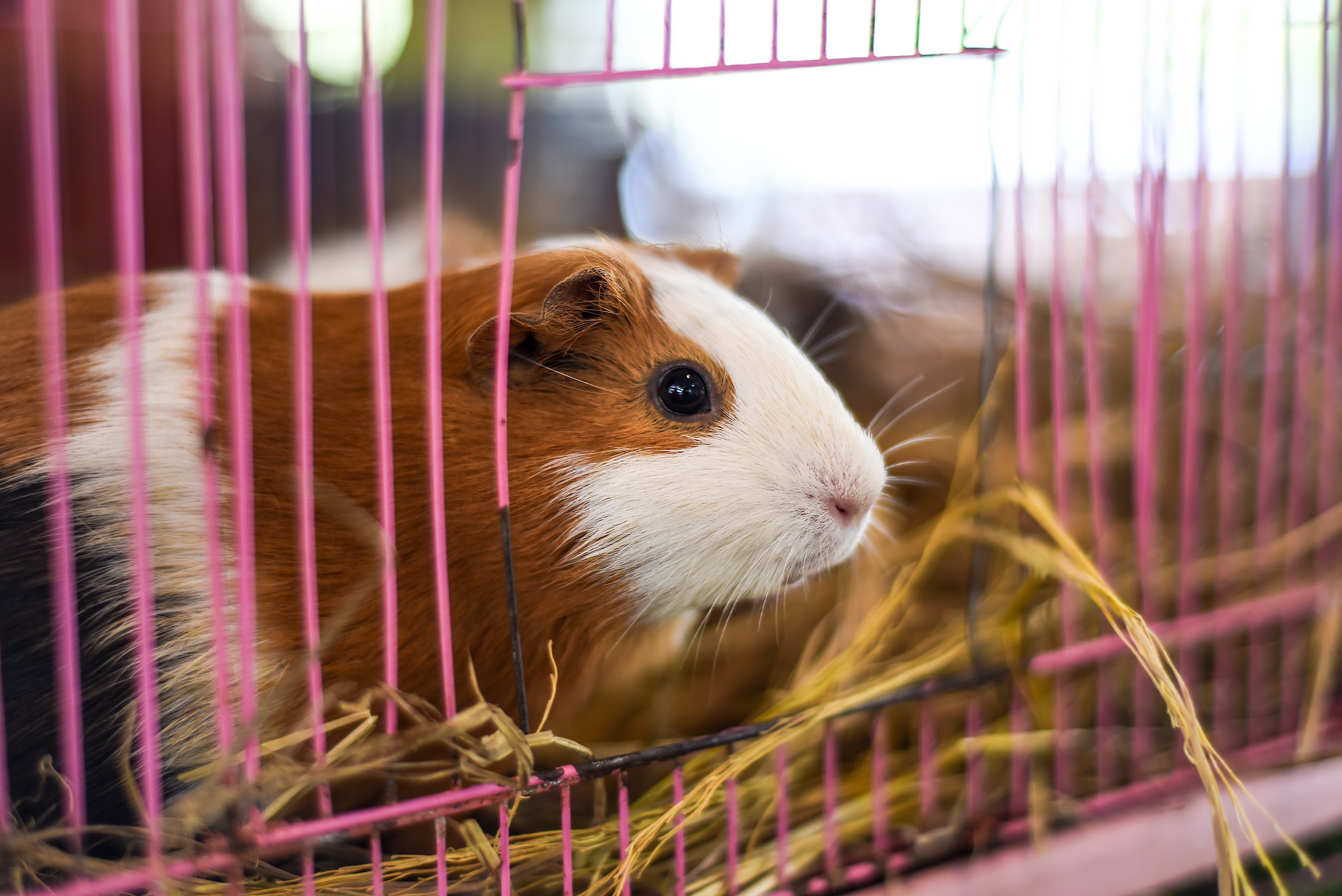Hundreds of small shelter animals were likely frozen and used as snake food
More than 300 rabbits, Guinea pigs, rats and hamsters were shipped from California to Arizona for adoption

Your support helps us to tell the story
From reproductive rights to climate change to Big Tech, The Independent is on the ground when the story is developing. Whether it's investigating the financials of Elon Musk's pro-Trump PAC or producing our latest documentary, 'The A Word', which shines a light on the American women fighting for reproductive rights, we know how important it is to parse out the facts from the messaging.
At such a critical moment in US history, we need reporters on the ground. Your donation allows us to keep sending journalists to speak to both sides of the story.
The Independent is trusted by Americans across the entire political spectrum. And unlike many other quality news outlets, we choose not to lock Americans out of our reporting and analysis with paywalls. We believe quality journalism should be available to everyone, paid for by those who can afford it.
Your support makes all the difference.Hundreds of small animals that were shipped from California to Arizona for adoption likely ended up frozen as snake food, officials have confirmed.
More than 300 rabbits, Guinea pigs, rats and hamsters were moved from the San Diego Humane Society to the Humane Society of Southern Arizona in August because of overcrowding.
Officials at the San Diego shelter became concerned when the shelter in Tuscon refused to confirm that the animals were safe, reported The San Diego Union-Tribune.
The Arizona shelter told its counterparts that the 323 animals had been adopted out through a private rescue group that wished to remain anonymous.
Now the San Diego shelter says that the animals ultimately ended up with brothers Trevor and Colten Jones. The newspaper reported that Colten Jones is a reptile breeder who also sells live and frozen animals for reptile food.
The Humane Society of Southern Arizona says that Mr Jones returned 62 animals to the group, leaving the fate of around 250 still unknown.
According to KVOA in Tucson, the day after the animals were transported to Arizona, Colten Jones sent a text message asking for help in processing a high volume of animals for food.
“Do you have the ability to freeze off a bunch of guinea pigs and or rabbits? I don’t have the manpower or labor to be able to do it in time for the show and it’s too much for me,” the message read, reported the news station.
The station says that the “show” was a reptile show in Pomona, California, a few days later.
Robert Garcia, chair of the Tucson organisation’s board of directors, told reporters on Thursday that Mr Jones had denied any improper action.
“The information (in the text) surely tells us what the intention was with the animals, and we’ve asked repeatedly for Mr Jones to provide information to the contrary, and he has not,” he said.
Dr Gary Weitzman, the San Diego shelter’s president and CEO, called the incident “a real tragedy.”
“That very damning text from Colten Jones just honestly brought me to my knees,” Dr Weitzman told The Union-Tribune.
“It’s not definitive, but it certainly gives us some pretty serious insight into the intentions of the recipient of the animals, and that was just devastating to see.”
He said that he had hoped knowing what happened would give some closure.
“But it doesn’t — it’s really just a real tragedy,” he added. “Giving them the answers does not necessarily make anybody feel any better. It’s still very raw and disheartening.”
Tucson police are investigating the incident after a report was filed with them on 2 November, but no charges or arrests have been made.
The San Diego shelter has hired a private investigator to look into the situation, and a report from the Tucson shelter is expected to be released next month.
The Arizona shelter last month fired its CEO and accepted the resignation of its chief programs officer.
In an October reply to a Facebook post, Mr Jones claimed that the animals had “all found homes”
“He who is perfect let him cast the first stone because no good deed goes unpunished,” he wrote. “As I have said before, they all found homes. Due to these aggressive messages and accusations, all adoptive families are terrified to come forward. There has been proof of life from families brave enough to subject themselves to these attacks sent to legal parties. After the animals were adopted out, they were legally no longer my possessions, so what those families choose to do with them is up to them. Out of respect for those families’ choices up to this point, i refuse to release any of their information. I am currently being advised by legal teams to disclose no more than that. Sorry to disappoint you.”
Join our commenting forum
Join thought-provoking conversations, follow other Independent readers and see their replies
Comments